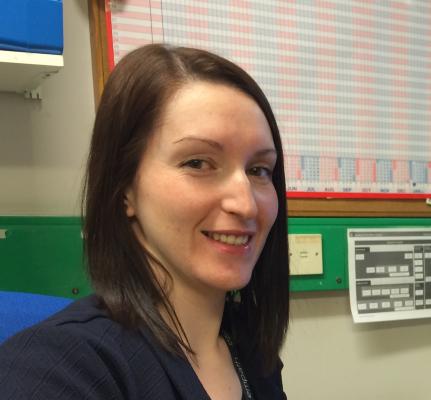Microbiology (healthcare scientist)
Microbiologists study organisms such as viruses that cause infections.
As a healthcare scientist working in microbiology, a large part of your work will be the identification and classification of these organisms.
Life as a microbiologist
You’ll be based in a laboratory where you’ll have a key role in preventing, diagnosing and controlling infections such as COVID19, Ebola, norovirus, MRSA and other ‘superbugs’. Your work will include one or more of:
- individual patients
- a hospital population
- and whole communities
You may work in diagnostic laboratories and pathology departments in hospitals. Many microbiologists work for the UK Health Security Agency.
You’ll use a range of specialist tests and technologies including molecular techniques to identify and classify organisms to support the response to infection. Microbiologists help to develop and improve tests to diagnose infectious diseases and advise on treatment options.
You’ll usually based in a laboratory but your work will affect most patients in the NHS at some point. Your work will also contribute to strategic decisions made by senior colleagues, for example to help control the spread of infections and the development of appropriate vaccines.
Gemma Clark
Clinical scientist
Read Gemma's storyWhat’s exciting for me is that I get to ‘road test’ new machines and new pieces of kit!

How much can I earn?
You’ll be employed on a national pay and conditions system called Agenda for Change (AfC).
Below are examples of the pay band you’ll be on, depending on your role within microbiology:
- healthcare science assistant – B2/3
- healthcare science associate – B4
- healthcare science practitioner – B5
- clinical scientist – B6/7/8a
- consultant clinical scientist – B8a-d
How about the benefits?
- make a difference to the lives of patients
- flexible and part-time working
- high income early in your career
- work anywhere in the world
- excellent pension scheme
- good holiday entitlement
- NHS discounts in shops and restaurants
Must-have skills
- excellent communication skills to manage a wide range of relationships with colleagues, patients and their families
- emotional resilience, a calm temperament and the ability to work well under pressure
- teamwork and the capacity to lead multidisciplinary teams
- problem-solving and diagnostic skills
- outstanding organisational ability and effective decision-making skills
- first-class time and resource management for the benefit of patients
How to become a microbiologist in clinical science
Starting your career in microbiology might be easier than you think. You could undertake study at university or find an apprenticeship that takes you straight into a job.
There are a wide variety of entry levels into microbiology such as assistant or level 2 apprenticeships, associate practitioner roles, level 4 apprenticeships.
If you’re already a registered and experienced healthcare scientist, there are Master’s degrees, the NHS Scientist Training Programme and Higher Specialist Scientist Training.
Entry requirements
There are several different ways to start your career in microbiology, depending on your experience and qualifications.
Apprenticeship
You could look for an entry level job/level 2 apprenticeship – typically GCSEs 9-4/A-C in maths, English and a science. If an apprenticeship feels right for you, you’ll need 5 GCSEs at 9-4/A-C (or equivalent) including maths, English and science or Level 2 Diploma in Healthcare Science to start a level 4 apprenticeship.
Associate practitioner
An associate practitioner role is another route to a career in microbiology. You’ll likely require foundation degree, or equivalent experience with training and experience to NVQ level 3.
Degree-level qualification
A level 6 apprenticeship or degree course require relevant level 3 qualifications, for example three A-levels (including at least one science subject) or an Access to higher education course.
Post-graduate
To start the Scientist Training Programme, you’ll need a 1st or 2:1 in relevant first degree or relevant higher degree and 2:2 in relevant degree subject .
Higher Specialist Scientist Training is available for registered Clinical Scientists in microbiology or Senior Biomedical Scientists with relevant MSc or specialist diploma.
Where a career in microbiology will take you
Working in clinical biochemistry can lead to registration as a Clinical Scientist. You can then move into senior and consultant Clinical Scientist roles, through the Higher Specialist Scientist Training (HSST) programme.
It can also lead to careers in academia, research, industry, management and leadership and training.
-
Scientist Microbiology Services Surveillance
London, NW9 5BG
- Salary :
- £38682.00 to £46580.00
- Type :
- Fixed-Term
- Employer :
- NHS Blood and Transplant
-
Specialist Biomedical Scientist, Microbiology (PF)
Essex, SS14 3BY
- Salary :
- £38385.00 to £46221.00
- Type :
- Permanent
- Employer :
- iPP Analytics Limited
-
Biomedical Scientist (Microbiology), Band 5
Gloucester, GL1 3NN
- Salary :
- £31049.00 to £37796.00
- Type :
- Permanent
- Employer :
- Gloucestershire Hospitals NHS Foundation Trust
-
Specialist Biomedical Scientist, Microbiology (SPS)
Somerset, TA1 2LB
- Salary :
- £38385.00 to £46221.00
- Type :
- Permanent
- Employer :
- Integrated Pathology Partnerships Limited
-
Medical Laboratory Assistant (Microbiology), Band 2
Gloucester, GL1 3NN
- Salary :
- £24465.00
- Type :
- Permanent
- Employer :
- Gloucestershire Hospitals NHS Foundation Trust
-
Pathology IT - Microbiology IT Deputy Lead
Wolverhampton, WV10 0PQ
- Salary :
- £31049.00 to £46580.00
- Type :
- Fixed-Term
- Employer :
- The Royal Wolverhampton NHS Trust
Showing 6 of 6 results




